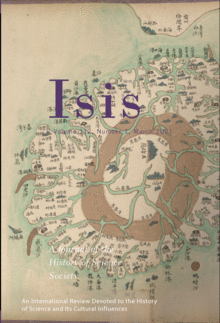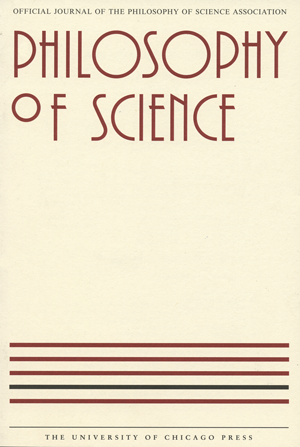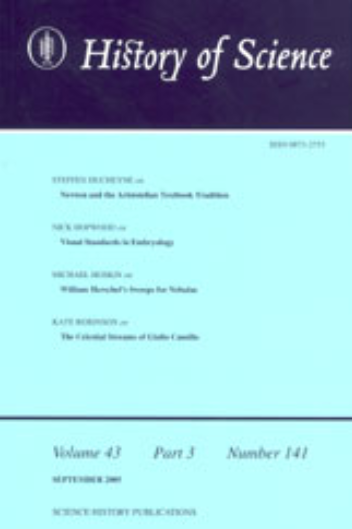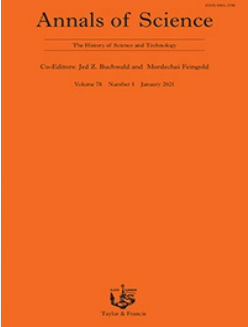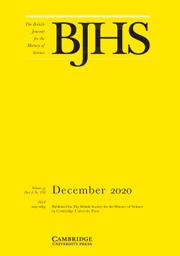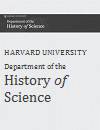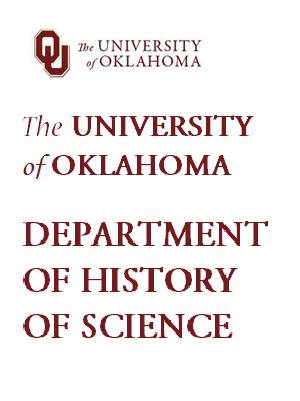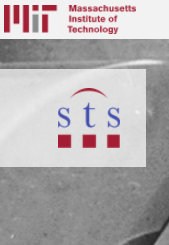JOURNAL OF DIALECTICS OF NATURE
A Comprehensive, Academic Journal of the Philosophy, History, Sociology and Cultural Studies of Science and Technology
Latest Articles
View all

-
Cultural Shock and Cognitive Revolution: The Transformation of Social Consciousness in the Moon Landing Era Abstract: The Apollo Program launched in 1961 was an iconic technological project of the 20th century. The “Earthrise” photo taken by Apollo 8 and the “Blue Marble” photo captured by Apollo 17 subverted humanity’s perception of the Earth, awakened awareness of ecological protection, and promoted attention to the shared destiny of mankind. However, the moon landing “conspiracy theory” has long been popular. It not only reflects the complex social psychology of that era but also embodies the political trust crisis and anti-intellectual trend in American society in the 1970s. In the field of artistic creation, the program drove the prosperity of technical realism in science fiction works, integrated ethical and social reflections, and led to the peak development of the “hard science fiction” genre. In terms of science education, it promoted the reform of STEM education in the United States, improved the scientific literacy of the whole people, cultivated a large number of scientific and technological talents, and laid the foundation for the development of science and technology in the United States.Issue:Volume 47, lssue 12, December 2025Page: 1-10
-
Path Individuation and Retrospective Grounding Abstract: This paper purports to expound a special (technical) notion of paths. A neglected fundamental fact (especially under indeterminism) is that the path-dependent direction of any diachronic outcome is backward, i.e., later steps depend on earlier ones successively, despite the ineradicable chance in their respective formation. In this paper, a token-oriented retrospective approach is proposed to overcome the limitation of the type-oriented approach in explaining path-related phenomena. My argument for the validity and utility of this approach is largely based on the elements of (PD), a definitional schema for diachronic sequences subject to a recursive counterfactual formula. I explore certain aspects of path individuation that have so far not been discussed, despite (PD)’s formal congeniality with Lewis’s ‘causal chain’. Two basic patterns of path generation are examined: the first is for distinguishing actual vs possible branching paths, while the second introduces a metaphysical theme regarding the retrospective grounding of the causal status of an upstream event by its downstream (joint) effect. A central example of the paper, viz., the Gobang game, is used to illustrate how the token-oriented approach works for path individuation. Key Words: Path individuation; Retrospective grounding; Token-oriented approach; Path dependence; Diachronic difference makingIssue:Volume 47, lssue 12, December 2025Page: 37-51
-
Research Status, Hot Spots and Development of Chinese Railway History Visual Analysis Based on Cite Space Abstract: The history of Chinese railways has long been of interest to the academic community as it serves as a microcosm of the nation’s journey toward great rejuvenation. CiteSpace software has the advantages of quantitative assessment and visual presentation, enabling a systematic review of the research patterns in Chinese railway history and a dynamic revelation of the evolution of research hotspots. This provides useful references for further deepening and expanding research in the field. From 1998 to 2023, Chinese railway history research has gone through three stages of development. The research hotspots have concentrated on railway rights history research based on the Baolu (Railway Protection) Movement, the history of important figures and their relationship with railways, the history of modern railway foreign debts, and the research on railways and social and economic changes. Chinese railway history research has undergone three shifts; further deepening of research requires fully exploring academic hotspots and strengthening research on major theoretical and practical issues in Chinese railway history, expanding the research time frame and perspective to enrich Chinese railway history research, and strengthening exchanges and cooperation and conducting interdisciplinary research. Key Words: Railway; Chinese railway history; Visual analysis; Knowledge graph; Cite SpaceIssue:Volume 47, lssue 12, December 2025Page: 61-71
-
Historical Insights from Japan’s Kamioka NDE Experiment: Examining Its Scientific-Cultural Impact Abstract: “Kamioka Experiment” (Kamioka NDE) represents a quintessential case study within the phenomenon of Japan’s “Nobel Prize Surge.” Through a micro-analysis from the perspective of Actor-Network Theory, it identifies the core actors as part of a diverse collaborative network built upon international academic participation and the integration of industry, academia, and research. Based on an empirical investigation into the construction mechanism of this network, this study posits that elements of scientific culture, such as a spirit of innovation grounded in a sense of responsibility and a pure pursuit of fundamental science, play a crucial “glue-like” role. This article broadens understanding of the operational mechanisms of scientific cultural elements within high-level technological innovation networks and may offer experiential insights for cultivating a scientific culture conducive to technological innovation in China. Key Words: Kamioka NDE; Original innovation; Scientific culture; Actor-NetworkIssue:Volume 47, lssue 12, December 2025Page: 83-92
-
Isamu Akasaki: The Fortunate Pioneer Who Lit the World with Blue LEDs Through Unwavering Dedication Abstract: Isamu Akasaki is a Japanese engineer and physicist who was awarded the 2014 Nobel Prize in Physics for his pioneering research in semiconductor materials, particularly gallium nitride (GaN)-based blue light-emitting diodes (LEDs). Isamu Akasaki started from an ordinary family and went through twists and turns in the industrial and academic fields, but remained steadfast until he finally made the important invention of blue LED. Analyzing his innovative exploration path and understanding how to combine personal interests with social needs through unremitting efforts to achieve the scientific exploration mechanism of lucky discovery of highlights undoubtedly has the value of specimen analysis. Key Words: Isamu Akasaki; Blue LED; Gallium Nitride (GaN); Scientific and technological innovationIssue:Volume 47, lssue 12, December 2025Page: 102-112
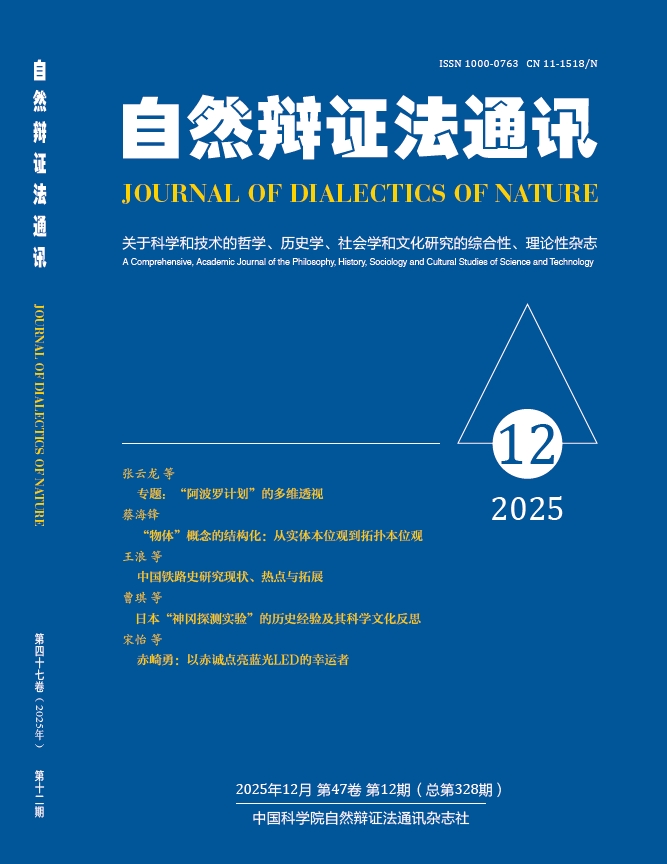
Hot Articles
View all
-
How Could AI Develop Its Self-consciousness? Abstract: The danger of AI will come from its self-consciousness rather than its capacity. AI would be a challenge to mankind if it develops a capacity for reflection on the system of its own, so that it would know how to remake its system with new rules, especially when it could invent its own language for all purposes, equal in capacity to human natural language, it could do anything it would. And AI would be most dangerous if it would be able to learn human desires, emotions and values, because all hostilities are based upon human desires and values.
-
From A Man-Machine Relationship to Inter Human Relations: Definition and Strategy of Artificial Intelligence Abstract: In order to distinguish the intelligent machine as a tool from the robot as a subject, the definition of human must change from essentialism to functionalism. So far, artificial intelligence has gone through three stages of development: formalization, empiricization and rationalization, but it is still not in the structure, but in the function of simulating human thinking. Only a functionalist definition of human beings can be compatible with the future of new species and new humans-"uncontrolled" robots. If "uncontrolled" robots emerge, the relationship between natural person and robot will develop from human-machine relationship to inter-human relationship. This relationship is neither the relationship between man and machine, nor the relationship between man and animal, nor the relationship between natural people. Natural people should not adopt the previous strategy to treat robots. Human supremacism is not self-evident. Natural man's self-re-evolution, man-machine parallel and man-machine fusion are feasible schemes for natural man to avoid being overtaken, replaced and eliminated by robots.
-
Non-Reductive Explanation in Biology: Context Arguments Abstract: Biological practice over the last several decades has shown that in many cases we cannot properly explain a higher-level phenomenon of interest only in terms of phenomena or mechanisms provided by lowerlevel explanations; to properly explain the higher-level phenomenon, information provided by the higher-level is also indispensable. One typical case is the context dependence of biological phenomena, namely, the occurrence of a higher-level phenomenon depends on its relevant environmental factors (e.g. cellular environments) which cannot simply be reduced to the lower-level (e.g. molecules) . On the other hand, the occurrence of the higher-level phenomenon can sometimes be independent of its lower-level underpinnings, since a change to the lower-level underpinnings does not necessarily result in corresponding changes in the higher-level. Facts based on these two sides constitute a ground for rejecting explanatory reductionism. This essay, by reference to examples drawn from biological practice, will discuss how contextual facts pose a challenge to explanatory reductionism.
-
Organismic Traits and the Explanatory Scope of Natural Selection Abstract: Could natural selection explain why an individual organism has the traits it does? Debates over this topic have lasted for decades in the philosophy of biology. Indeed, the negative view and the positive view have different interpretations of the very why-question. The two sides have posited different explananda: a whole explicit fact (for the positive view) vs. a particular contrastive focal aspect of the explicit fact (for the negative view). Both explananda are reasonable and acceptable. However, elimination of misinterpretation does not render the negative view true. Rather, I argue that the negative view as a universal proposition is indeed untenable, for there are counterexamples for it in cases of symbiosis, lateral gene transfer, and genic selection. Key Words: Organismic traits; Natural selection; Scientific explanation
-
Dr. Edward Hume: The Intermediary Who Promoted the Rockefeller Foundation’s Initial Public Health Practice in China Abstract: The Rockefeller Foundation intended to carry out hookworm disease treatment and prevention campaigns in many countries around the world at its initiation. Dr. Edward Hume, as the founder of the Yali Hospital and the Hsiang-ya Medical College in Hunan, tried to seek financial support from the Rockefeller Foundation in order to fulfill his plan in public health education in China. He used his connections and influence in Hunan to help the Rockefeller Foundation introduce the hookworm disease treatment and prevention project into China. In this transnational undertaking, Dr. Hume essentially played the role of an intermediary, who considerably promoted the Rockefeller Foundation’s earliest public health practice in China.
-
Kinnosuke Ogura: A Pioneer in The Study of Social History of Mathematics Abstract: Kinnosuke Ogura was a renowned mathematical historian and educator in modern Japan. He has made outstanding contribution to the study of mathematics education and the history of mathematics. In the filed of mathematical history, he began to study the social problems of mathematics in the late 1920s. He believed that the sociality of mathematics must be concretized in the study of mathematical history, and investigated the relationship between the ideology, the economic foundation and the development of mathematics. He was a pioneer in the social history of mathematics. Key Words: Kinnosuke Ogura; Mathematical history; Sociality
News & Events
Outside Links
JOURNAL OF DIALECTICS OF NATURE
- Contact Us
- Address: No.19A Yuquan Road, Beijing, 100049, China
- Phone: +86-10-88256007
- Email:jdn@ucas.ac.cn

Follow Us
© 2014 Copyright of the University of Chinese Academy of Sciences
© 2014 Copyright of the University of Chinese Academy of Sciences

